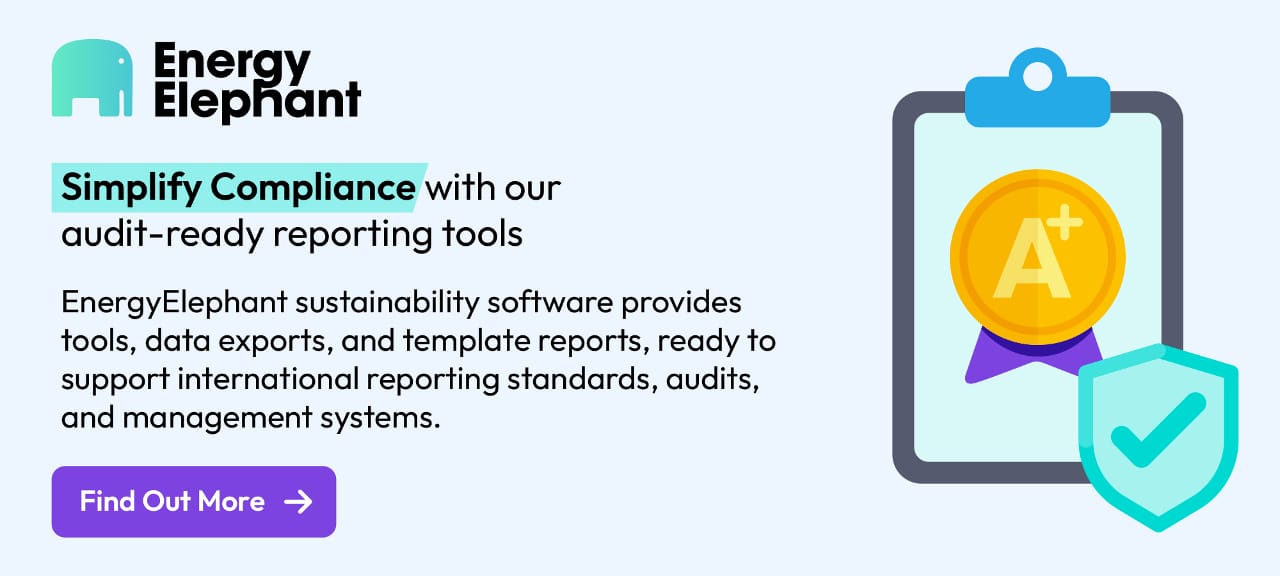Historic Climate Ruling: Finally, a shift from moral appeals to legal accountability
A landmark ruling by the world’s highest Court provides unprecedented clarity on the obligations of all States in respect of climate change, and an authoritative framework for climate litigation and corporate accountability. Here’s what you need to know.

The most consequential climate decision in legal history had its humble beginnings in a classroom, in a tiny South Pacific Ocean nation called Vanuatu.
Under the banner of the Pacific Islands Students Fighting Climate Change (PISFCC), a collective of 27 law students managed to mobilise their government, and a vast network of lawyers, activists, scholars, and diplomats, until 130 governments formally brought a request to the International Court of Justice (ICJ) for an advisory opinion on the obligations of States in respect of climate change.
On 23 July 2025, the ICJ handed down its unanimous Advisory Opinion. Below, we will unpack its key findings, and explain how more stringent legal and ethical requirements for organisations might translate into increased responsibilities for professionals managing their sustainability efforts.
Key findings of the landmark ruling
- Drawing upon various sources, including the UN Charter, climate change treaties, human rights law, and customary international law, the ICJ’s Obligations of States in respect of Climate Change Advisory Opinion determines the obligations of all States to respect and ensure the effective enjoyment of human rights by taking necessary measures to protect the climate system and other parts of the environment.
- The Advisory Opinion acknowledges the unequivocal role of anthropogenic greenhouse gas (GHG) emissions as the main driver of climate change. While specific climate treaty obligations bind only their signatories (e.g. Parties to the Paris Agreement), the fundamental duties derived from customary international law and human rights law apply universally.
- A breach by any State of obligations identified in the Advisory Opinion constitutes an internationally wrongful act, entailing legal consequences. Crucially, the relevant conduct is not limited to actions that directly result in GHG emissions, but also encompasses policymaking, licensing, and subsidising of fossil fuels if they cause significant harm to the climate system in breach of international obligations.
Legal consequences
- Obligations pertaining to the protection of the climate system are obligations erga omnes (owed to the international community as a whole). Where a State has, by their acts and/or omissions, failed to prevent significant trans-boundary harm to the climate system and other parts of the environment, they have a duty to make full reparation to injured States.
- Reparations may include restitution (e.g. restoring damaged ecosystems), compensation (for financially assessable damage), or satisfaction (e.g. formal apologies or declarations of wrongfulness), provided a "sufficiently direct and certain causal nexus" can be shown between the wrongful act and the injury. While any State can invoke responsibility for breaches, only directly injured States can claim full reparation for themselves.
- A State's general willingness to pay restitution for past environmental harm (the “polluter pays” principle) does not provide a legal basis to continue polluting. The State is obligated to cease the wrongful act if it is continuing, and breaches of these climate obligations constitute an internationally wrongful act. This extends to regulating the conduct of private actors within the State's jurisdiction or control.
Invoking responsibility
- Some participants in the proceedings submitted that it is difficult to invoke responsibility in the context of climate change given that the wrongful conduct is cumulative in nature, involving a plurality of States that cause injury to other States over a period of time.
- While climate change is caused by cumulative GHG emissions, it is scientifically possible to determine each State’s total contribution to global emissions, taking into account both historical and current emissions. What constitutes a wrongful act is not the emissions in and of themselves, but actions and/or omissions causing significant harm to the climate system in breach of a State’s international obligations.
- Therefore, each injured State may separately invoke the responsibility of every State which has committed an internationally wrongful act resulting in damage to the climate system and other parts of the environment. And where several States are responsible for the same internationally wrongful act, the responsibility of each State may be invoked in relation to that act.
Determination of responsibility
- Causation involves two distinct elements: first, whether a given climatic event or trend can be attributed to anthropogenic climate change; and second, to what extent damage caused by climate change can be attributed to a particular State or group of States. While the second element must be established in concreto in respect of specific claims brought by States in respect of damage, in many cases the first element may be addressed by recourse to science, i.e. the scientific evidence adduced in these proceedings establishes that significant harm to the climate system has been caused as a result of anthropogenic GHG emissions.
- While the causal link between the wrongful actions and/or omissions of a State and the harm arising from climate change is more tenuous than in the case of local sources of pollution, this does not mean that the identification of a causal link is impossible in the climate change context. It merely means that the causal link must be established in each case through an in concreto assessment.
- The fact that the damage may be the result of concurrent causes is not sufficient to exempt a State from any obligation to make reparation. The required legal standard of “a sufficiently direct and certain causal nexus” between an alleged wrongful action and/or omission and the alleged damage is flexible enough to address the challenges arising in respect of the phenomenon of climate change.
Key takeaways for organisations
The Advisory Opinion not only determines the obligations of all States in respect of climate change, it also provides an authoritative framework for climate litigation and corporate accountability.
Here’s how more stringent legal and ethical requirements for organisations might translate into increased responsibilities for professionals in sustainability/energy focused roles.

CFOs & Finance Teams
CFOs and Finance Teams are central to an organisation's operations, overseeing financial management and ensuring regulatory compliance, including sustainability/ESG (environmental, social, and governance) reporting.
- Enhanced Financial Risk Management: The Advisory Opinion clarifies that breaches of States' climate obligations can lead to legal consequences including full reparation through restitution, compensation, and satisfaction. This means increased financial exposure and the risk of significant financial penalties for non-compliance with evolving ESG regulations. Finance Teams will need to proactively assess and quantify these risks, integrating them into financial forecasting and balance sheets. The Advisory Opinion also explicitly notes that the Loss and Damage Fund is for complementary and additional support and does not preclude mandatory compensation for States that breach their climate obligations.
- Meticulous Data Collection and Reporting: The stringent duty of due diligence requires deep, rapid, and sustained reductions of GHG emissions. To achieve this, organisations must have audit-ready carbon and GHG emissions data for Scope 1, Scope 2, and in some cases Scope 3. Finance Teams, responsible for data collection, analysis, and quality checking of energy consumption and GHG emissions, will face intensified pressure to ensure data accuracy, transparency, and auditability for both internal management and regulatory bodies.
- Strategic Investment Allocation: Decisions to phase out fossil fuel dependence and transition to clean energy are key to limiting global warming. Finance Teams will be crucial in evaluating and allocating investments towards decarbonisation projects, such as energy efficiency improvements and renewable energy integration, to meet evolving targets and mitigate legal and financial risks.
ESG Managers & Sustainability Teams
ESG Managers and Sustainability Teams are responsible for developing and implementing sustainability strategies, ensuring compliance, and planning decarbonisation efforts.
- Intensified Regulatory Scrutiny and Compliance: The Advisory Opinion provides unprecedented legal clarity on States' obligations, which include regulatory mitigation mechanisms for private actors. This translates into heightened pressure for Sustainability Teams to continuously update and robustly manage compliance and reporting frameworks to meet increasingly stringent national regulations and policies. The need for audit-ready carbon and GHG emissions data for Scope 1, Scope 2, and in some cases Scope 3, will drive their daily data management tasks.
- Expanded Scope of Accountable Conduct: The Advisory Opinion clarifies that relevant conduct is not limited to direct GHG emissions but comprises all actions and/or omissions of States that result in the climate system being adversely affected by anthropogenic GHG emissions. This encompasses the full range of human activities that contribute to climate change, including both consumption and production activities. The Advisory Opinion directly addresses fossil fuels, stating that failing to phase out production, consumption, and eliminate subsidies of fossil fuels is indefensible. Sustainability Teams must now scrutinise their organisation's entire value chain and business model, including indirect contributions through procurement, investments, and advocacy, and re-evaluate strategies to align with global phase-out expectations, especially for organisations linked to fossil fuel production, licensing, or subsidies.
- Stronger Link to Human Rights and Inter-generational Equity: The Advisory Opinion reaffirms the right to a clean, healthy, and sustainable environment as a binding norm of international law and a precondition for the enjoyment of many other human rights. It also emphasises inter-generational equity as a guiding principle, obliging present generations to be trustees of humanity for future generations. Sustainability strategies must now more explicitly incorporate human rights considerations, particularly for vulnerable communities, and long-term inter-generational impacts.
- Increased Litigation and Reparation Risks: The Advisory Opinion will boost pending climate cases and inspire new ones seeking justice and compensation for climate damage. Sustainability Teams will need to collaborate closely with legal teams to assess and mitigate these risks and potentially guide proactive measures to avoid claims, as any breach of legal obligations by a State in the climate context triggers the full suite of legal consequences under the international law of State responsibility.
Head of Estates & Operations Teams
Head of Estates and Operations Teams oversee the management and maintenance of an organisation's infrastructure and assets, ensuring efficient, safe, and sustainable operations.
- Direct Operational Decarbonisation Mandates: The Advisory Opinion's emphasis on deep, rapid, and sustained reductions of GHG emissions will translate into more aggressive targets and mandates for operational decarbonisation. The responsibility for managing buildings, vehicles, and other assets will directly involve implementing projects for energy efficiency, renewable energy integration, and other GHG reduction measures to achieve organisational targets and compliance.
- Enhanced Compliance Burden and Risk Mitigation: Operations Teams are directly responsible for ensuring compliance with energy regulations and reporting requirements, including those related to carbon emissions, energy performance certificates, and other relevant standards. The stringent due diligence standard means their role in accurate reporting and meeting targets is critical to avoid financial penalties and reputational damage.
- Comprehensive Environmental Impact Assessments (EIAs): The duty of due diligence requires States to conduct EIAs, particularly for significant proposed individual activities contributing to GHG emissions under their jurisdiction or control (including those of private actors). These EIAs must include climate-specific effects and consider possible downstream effects. Operations Teams will need to ensure that all relevant operational projects undergo rigorous, climate-inclusive EIAs, scrutinising the full lifecycle impact of new infrastructure or activities.
- Strategic Prioritisation of Efficiency Projects: Given the pressure for rapid reductions, Operations Teams will need to accurately identify sources of energy waste and inefficiency and prioritise improvement projects based on their effectiveness and return-on-investment. Advocacy for funding to upgrade outdated energy management systems and infrastructure investments will likely intensify.
Energy Managers & Facilities Teams
Energy Managers and Facilities Teams focus on monitoring and managing energy consumption, optimising efficiency, and preparing reports for cost-effective and sustainable operations.
- Crucial Role in GHG Reduction Implementation: The core duties of developing and implementing improvement projects will be directly tied to the Advisory Opinion's call for deep, rapid, and sustained reductions of GHG emissions. This means accelerating the implementation of energy efficiency measures (e.g. LED upgrades, HVAC optimisation), renewable energy integration, and other decarbonisation initiatives across facilities.
- Intensified Data Management and Reporting Demands: Facilities Teams work with large datasets from various sources (utility bills, smart meters, Building Management Systems) to understand consumption. The heightened demand for data quality, transparency, and audit-ready emissions data (Scope 1, Scope 2, and potentially Scope 3) means automating energy and carbon data management will be essential to reduce manual errors and provide clear, consolidated views of energy consumption and costs.
- Compliance and Risk Mitigation at the Operational Level: Responsible for ensuring compliance with energy regulations and reporting requirements, Facilities Teams will bear the direct operational burden of the stringent due diligence standard. Accurate and timely reporting of energy usage and emissions will be critical to avoid financial penalties and reputational damage for the organisation.
- Proactive Identification of Inefficiencies: The need to demonstrate actual carbon reductions and significant cost and energy savings will require Facilities Teams to become even more adept at accurately identifying sources of energy waste and inefficiency and prioritising projects that deliver the most impact.

